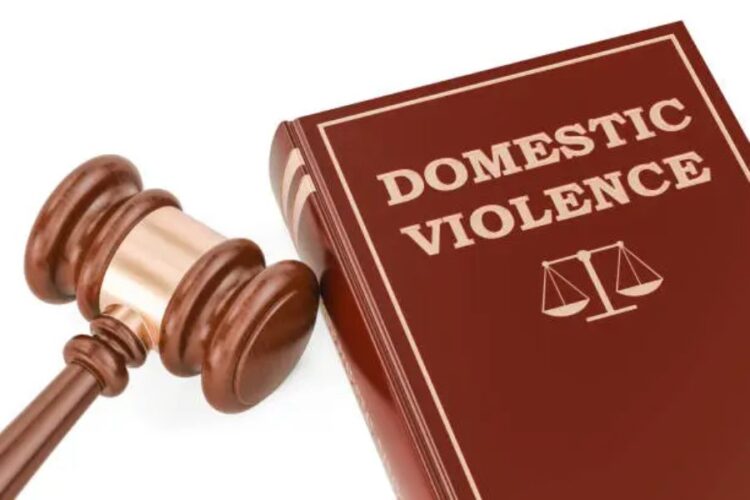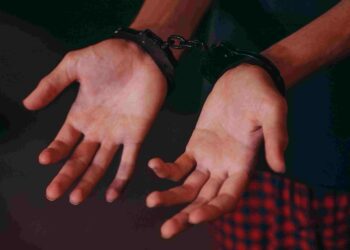Domestic violence is a serious issue that affects millions of people every year. In Florida, one of the most pressing questions when it comes to this topic is, “Is domestic violence a felony in Florida?” The answer is complex, as the classification of domestic violence can range from misdemeanors to felonies, depending on the severity and nature of the crime. Understanding Florida’s laws on domestic violence is crucial for both victims and those accused of such crimes.
Florida’s legal system treats domestic violence very seriously, offering various protections for victims and outlining significant legal consequences for perpetrators. The law defines domestic violence as any abuse or violence that occurs within a family or intimate relationship. However, the charge can escalate based on factors such as the presence of injuries, threats, and previous convictions.
This article explores the various types of domestic violence offenses in Florida, the penalties associated with them, and the process by which such cases are handled in court. We will also discuss what constitutes a felony in domestic violence cases and what steps victims can take to seek legal recourse.
Is domestic violence a felony in Florida?
Yes, domestic violence can be considered a felony in Florida, depending on the severity of the offense. If the violence involves aggravating factors like severe injury, the use of a weapon, or prior convictions for similar offenses, the charge may escalate to a felony. Florida law provides severe penalties for domestic violence felonies, including long-term prison sentences and hefty fines.
Defining Domestic Violence in Florida
In Florida, domestic violence is defined as any act of violence or threat of violence directed at a family member, spouse, cohabitant, or someone in a romantic relationship. This includes physical violence such as hitting, slapping, or pushing, as well as other forms of abuse like emotional, psychological, and sexual abuse. Florida’s domestic violence laws are designed to protect victims and provide legal options for recourse, including restraining orders and criminal charges against offenders.
Florida law makes a clear distinction between misdemeanor and felony domestic violence charges. If the abuse results in injuries, or if the accused has prior convictions for similar offenses, the charge may escalate to a felony. The severity of the offense is often determined by factors such as the extent of physical harm, use of a weapon, or repeated instances of abuse.
If you are seeking to understand the legal recourse available for domestic violence victims, Law Tools Web offers helpful resources and guides on navigating the legal process, including how to file for protection and understand your rights.
In this section, we will explore the various types of abuse classified under Florida’s domestic violence laws and examine the criteria that determine whether the charge is a misdemeanor or felony. These distinctions are important as they determine the legal consequences an abuser faces and the protection available to the victim. Understanding these classifications is crucial for both victims seeking justice and those facing allegations of domestic violence.
When Does Domestic Violence Become a Felony in Florida?
Domestic violence in Florida can escalate from a misdemeanor to a felony when specific aggravating factors are present. These factors help determine the severity of the charge and the consequences for the offender.
Severity of Injuries
One of the primary factors that can elevate a domestic violence charge to a felony is the severity of injuries sustained by the victim. If the victim suffers significant harm, such as broken bones, head injuries, or deep wounds, the offense is more likely to be classified as a felony. The legal system treats these injuries as serious, recognizing the significant physical harm inflicted.
Use of a Weapon
Another crucial factor in escalating a domestic violence charge is the use of a weapon. If the perpetrator uses or threatens to use a weapon against the victim, the crime is more likely to be considered a felony. The presence of a weapon increases the potential for severe harm and is treated with stricter legal consequences.
Prior Convictions
Prior convictions for domestic violence or other violent crimes also contribute to the classification of the offense as a felony. If the perpetrator has a history of abusive behavior, the legal system often seeks to impose harsher penalties. Repeat offenders are seen as posing a higher risk to public safety, leading to more serious charges.
This section will explore how these factors contribute to the classification of domestic violence as a felony in Florida and the resulting legal consequences for offenders.
Penalties for Felony Domestic Violence in Florida
Felony domestic violence charges in Florida come with severe penalties, reflecting the seriousness of the offense. If convicted, defendants face various criminal penalties, including:
- Imprisonment: Felony convictions for domestic violence may lead to lengthy prison sentences, which can range from several years to life, depending on the severity of the crime and the presence of aggravating factors such as prior convictions or use of a weapon.
- Fines: Florida law mandates substantial fines for those convicted of felony domestic violence. These fines are intended to serve as both a financial consequence and a deterrent against future offenses.
- Probation: In some cases, offenders may be sentenced to probation instead of, or in addition to, prison time. During probation, offenders must adhere to strict conditions set by the court, including regular check-ins with a probation officer, attending counseling, and staying away from the victim.
These penalties highlight the state’s commitment to protecting victims and deterring future violence. Felony convictions for domestic violence in Florida carry life-changing consequences for the offenders and emphasize the importance of addressing abuse seriously within the legal system.
Legal Protections for Domestic Violence Victims in Florida
Florida provides several legal protections for victims of domestic violence, ensuring they have options to seek safety and justice. One of the primary protections is obtaining a restraining order, also known as an “injunction for protection.” This legal order prohibits the abuser from contacting, harassing, or approaching the victim, providing crucial safety measures.
In addition to restraining orders, victims of domestic violence in Florida can pursue criminal prosecution against their abuser. Criminal charges can lead to penalties such as imprisonment, fines, and probation for the offender.
Florida law also provides additional resources for victims, including shelters, counseling services, and support groups. These resources are essential for helping individuals escape dangerous situations and begin the recovery process.
This section will explore the process for filing for protection, the types of legal options available, and the resources that can help victims of domestic violence in Florida regain control of their lives and secure their safety.
The Role of Law Enforcement in Domestic Violence Cases
Law enforcement plays a vital role in handling domestic violence cases in Florida. They are often the first line of defense for victims, ensuring immediate protection and taking swift action. Below are the key roles law enforcement plays in domestic violence incidents:
- Mandatory Arrests: In Florida, officers are required to arrest an individual if they believe domestic violence has occurred, regardless of whether the victim wishes to press charges. This mandatory arrest policy is designed to prevent further harm and ensure the safety of the victim.
- Protection of Victims: Law enforcement ensures that victims are removed from dangerous situations quickly, providing a critical layer of protection. Officers often help victims secure immediate safety through injunctions or restraining orders.
- Investigation and Evidence Collection: Officers are responsible for gathering evidence, taking statements, and documenting injuries or threats. This helps build the case for prosecution if charges are pressed.
- Early Intervention: Law enforcement’s quick response and intervention can prevent escalation of violence and provide an opportunity for victims to receive support services.
In Florida, law enforcement’s role in domestic violence cases is essential for both protecting victims and holding offenders accountable.
In Closing
Knowing whether domestic violence is a felony in Florida is crucial for both victims and perpetrators. Florida’s legal system classifies domestic violence offenses as either misdemeanors or felonies based on the nature and severity of the abuse. Felony convictions carry severe penalties, including significant prison sentences and substantial fines.
At the same time, Florida law offers strong protections for victims, ensuring they have avenues for legal recourse and support. Whether you’re seeking justice for yourself or trying to understand the legal ramifications, this guide provides essential information about Florida’s domestic violence laws and the potential consequences for all involved.
FAQ’s
Is domestic violence always a felony in Florida?
No, domestic violence can be classified as a misdemeanor or felony depending on factors like injury severity, the use of a weapon, and the offender’s criminal history.
What are the penalties for felony domestic violence in Florida?
Felony domestic violence charges in Florida can lead to significant prison sentences, fines, and mandatory probation, depending on the nature of the crime.
Can I get a restraining order in Florida if I’m a victim of domestic violence?
Yes, Florida law allows victims of domestic violence to seek injunctions for protection, which prevent the abuser from contacting or coming near the victim.
How do police handle domestic violence cases in Florida?
Florida law mandates that law enforcement officers arrest individuals suspected of committing domestic violence, even if the victim does not wish to press charges.
Can verbal abuse be considered domestic violence in Florida?
Yes, verbal abuse can be considered domestic violence in Florida if it is part of a pattern of controlling or abusive behavior that causes emotional harm to the victim.









